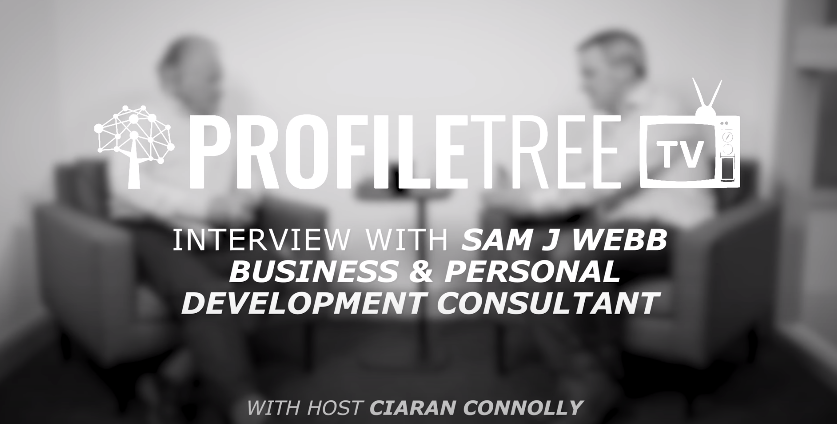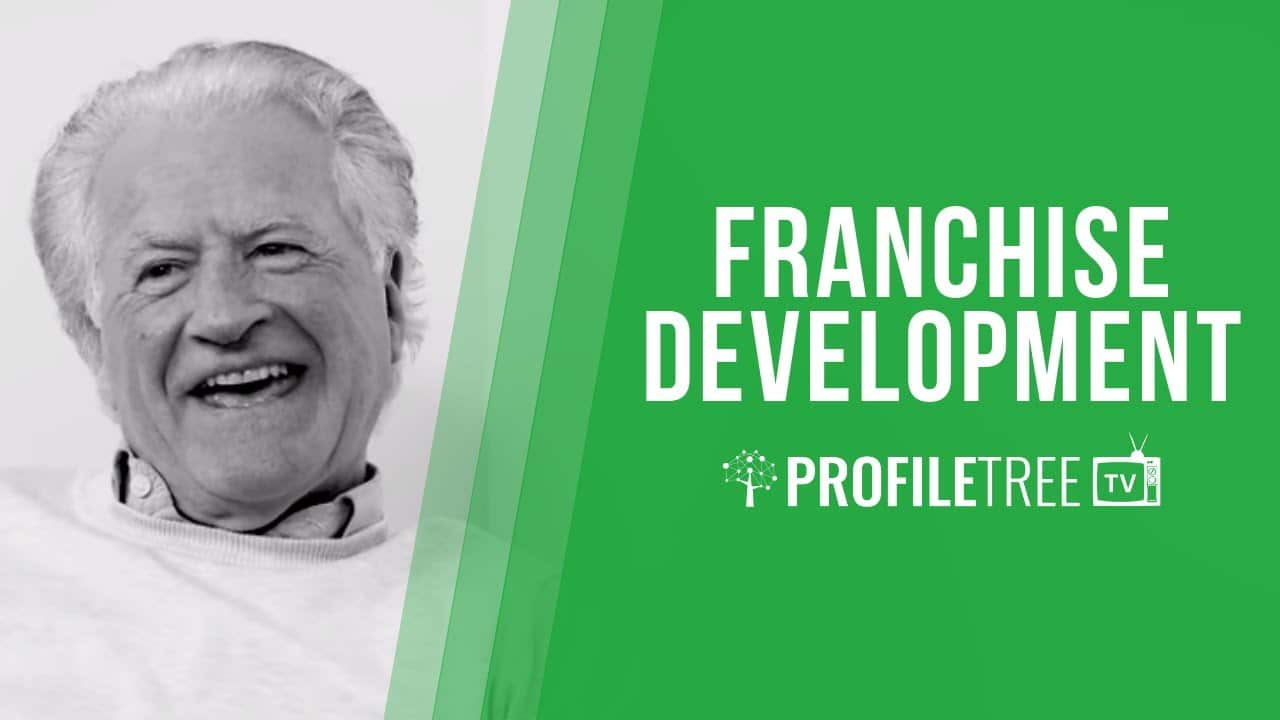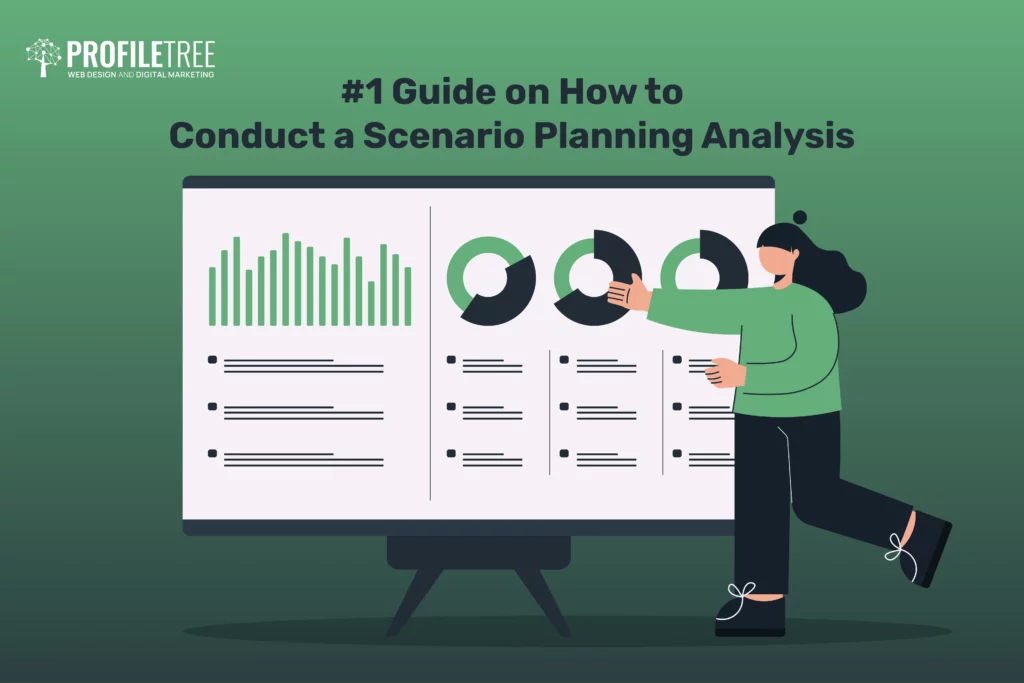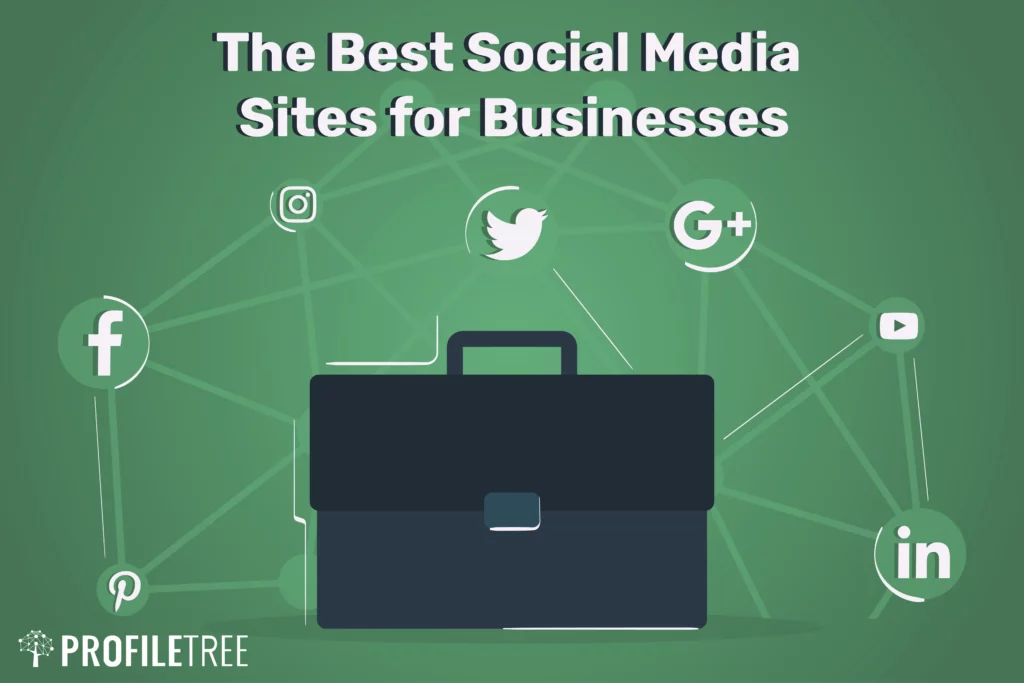Personal and business development are separate, yet intertwined. When you choose to invest and nurture one, this can have a positive knock-on effect of the other. But how can we leverage both into ensuring career success?
In our latest instalment of our Business Leaders series, we speak with Sam J Webb, a business development consultant and life development teacher, to explore these topics.
To learn more about the balance between personal and business development, check out our full interview below, or read on for the highlights.
Table of Contents

Sam J Webb’s Own Personal and Business Development
Sam began his interview by outlining his path to becoming a consultant. His decision came after seeing others go to university without much career success, to then choose a completely different career path.
“I left school just after my O Levels because I wanted to earn money and to get into business, although I didn’t know where to start. I was working in bars and hotels to earn money, and I used to buy the Sunday Times to, in particular, glance at the business section.

“I was always intrigued by the pages of great jobs, but they were nearly always in London and other places. Then one came up, a sales job for British Olivetti in Belfast, and that was my sales career launched.”
A former colleague who had moved into insurance and financial services recommended the industry, leading Sam to sell insurance with great success.
After finding a backer, Sam established his own financial services business in his early twenties and discovered a talent for recruiting and training.
He then built up a network of franchises, however the new Financial Services Authority didn’t allow for the structures being used. This led to huge losses for Sam.
Starting over, he asked himself what he could learn from the experience, and took stock of the skills in sales, franchising and business he had gathered. While also helping companies with areas including sales training, Sam was also able to use his knowledge to advise on business development and personal development.
“I got very interested in the person behind the business, asking ‘what qualities do they need?’, ‘how can I help there?’.
“I got into personal self-development, and learned about balanced success. Balanced success is not so much looking at all aspects like the mental, spiritual, physical – it is many different aspects of your life like your personal, social, family, financial. The balance was about you inside, who you really were, and what is going on outside, who you thought you were.”
Now, Sam offers his clients a range of expert mentoring support, as well as the option of specialist help with using a franchise business model.

Sam’s Advice on Franchising
Sam also gave a deeper dive into franchising, explaining the three main components behind this type of business.
“You have to have your prospectus, something you’ll present to the guy who’s looking at starting the business. That has to be appealing and have everything about the business in it, why it is going to work, what the product is and who you are. It has to have enough information so he can make an informed decision about putting his money into this franchise. The prospectus is very important, you would usually need an expert consultant to help you write that.”
The latter parts focus on the legalities of starting up a franchise.
“Next is your legal agreement, the relationship between you and your franchisee. You’ll need to have that looked at by a legal person, obviously, but there are 20 or 30 points that a good consultant can go through with you.
“The third thing is your manual, which might be three or four manuals, or a training course. But it’s the ‘how to’ book, the whole secret. You have to make sure you have copyrighting so someone can’t just go off and do the same thing.”
While Sam has condensed it down into simple terms, he states that professional business advice is always required.
“Generally, someone couldn’t do these on their own quickly, efficiently, or accurately. That’s why I offer consultancy services to help my clients through these three franchise stages and the process of selling and developing these franchises.”
To explore a range of insights from Sam, watch our full Business Leaders video. To contact Sam directly, you can reach out via LinkedIn.
Defining & Intertwining: Personal and Business Development
I. Personal Development:
At its core, personal development is the ongoing process of enhancing your skills, knowledge, and abilities to become the best version of yourself. It involves:
- Self-awareness: Understanding your strengths, weaknesses, values, and desires.
- Goal setting: Defining what you want to achieve in various aspects of your life (relationships, career, health, etc.).
- Skill development: Acquiring new skills or strengthening existing ones through learning, practice, and feedback.
- Mindset shifts: Cultivating positive thinking, resilience, and emotional intelligence.
- Habit building: Integrating productive and healthy habits into your daily routine.
II. Business Development:
Business development focuses on expanding and improving a company’s operations and profitability. Key aspects include:
- Market research: Analyzing potential customers, competitors, and industry trends.
- Developing new products or services: Identifying and meeting unmet needs in the market.
- Expanding customer base: Building relationships, generating leads, and increasing sales.
- Creating strategic partnerships: Collaborating with other businesses for mutual benefit.
- Optimizing internal processes: Improving efficiency, productivity, and resource allocation.
III. The Intertwined Dance:
While personal and business development may seem distinct, they are deeply interconnected and influence each other in profound ways:
Complementary:
- Enhanced skills: Skills built in one area can benefit the other (e.g., communication skills honed in your personal life improve team leadership).
- Increased self-confidence: Personal growth fosters confidence, translating into stronger business negotiation and presentation skills.
- Improved work-life balance: Personal development practices like stress management and mindfulness can create a better work environment.
Synergistic:
- Passionate leadership: Personal growth often reveals your passions, guiding you to create a business you truly care about.
- Entrepreneurial mindset: Personal initiative and creativity honed through self-development lead to innovative business solutions.
- Resilience and problem-solving: The ability to handle challenges in your personal life equips you to navigate business difficulties more effectively.
IV. Beyond Complementary:
The synergy between personal and business development is powerful, leading to a dynamic interplay where each area fuels the other, creating a virtuous cycle of growth:
- Personal goals inspire business vision: Your personal aspiration to make a positive impact might drive you to build a socially responsible company.
- Business success empowers personal growth: Financial security obtained through business success creates opportunities for pursuing personal interests and hobbies.
- Leadership by example: Authentic leadership is deeply rooted in self-awareness and personal growth, inspiring and motivating others.
By recognizing this intertwined dance and actively nurturing both personal and business development, you can unlock your full potential and achieve holistic success.
Benefits of a Holistic Development Approach
A one-dimensional approach to success, focusing solely on business prowess or neglecting personal growth, is akin to driving with one hand tied behind your back. By embracing a holistic approach, nurturing both personal and professional skills, you unlock a treasure trove of benefits that propel you towards true fulfilment and sustainable success.
I. Enhanced Performance and Productivity:
- Sharpened skills: Imagine an entrepreneur with exceptional communication skills honed through personal development. They seamlessly connect with investors, build stronger teams, and deliver impactful presentations, ultimately leading to increased sales and higher ROI.
- Improved focus and motivation: Personal practices like mindfulness and stress management boost concentration and resilience, leading to higher productivity and better decision-making in the business realm. Studies show that companies with engaged employees experience a 21% increase in profitability.
- Innovation and creativity: When personal growth fosters curiosity and open-mindedness, businesses benefit from a surge of creative ideas and innovative solutions. A study by PwC reveals that 73% of CEOs believe investing in employee development fosters a culture of innovation.
II. A More Fulfilling Work Environment:
- Stronger leadership: Leaders who practice self-awareness and emotional intelligence cultivate empathetic communication, fostering trust and respect within their teams. Gallup reports that employee engagement rises by 21% when they feel connected to their leaders.
- Reduced burnout and stress: Personal wellbeing practices like exercise and meditation equip individuals to navigate intense business challenges with greater resilience, preventing burnout and fostering a healthier work-life balance. A study by the American Institute of Stress found that companies with strong wellness programs see a 27% reduction in absenteeism.
- Increased engagement and retention: Employees who feel supported in their personal development are more likely to be engaged and invested in their work, leading to lower turnover and increased productivity. A LinkedIn report notes that companies focused on employee growth experience a 53% lower turnover rate.
III. Personal Growth as a Business Catalyst:
- Strategic vision: When your personal values and aspirations align with your business goals, you gain a sense of purpose and direction, translating to a clearer strategic vision for your company. Tony Hsieh, founder of Zappos, attributes the company’s success to its focus on building a positive company culture rooted in employee happiness.
- Resilience and adaptability: Navigating the competitive business landscape requires adaptability and the ability to bounce back from setbacks. Personal development practices like goal setting and problem-solving enhance these skills, enabling you to weather challenges and seize new opportunities. A study by McKinsey & Company found that companies with a culture of agility outperform their peers by 30%.
- Authentic leadership: Leaders who are confident and comfortable in their own skin inspire and motivate their teams. Personal growth fosters self-awareness and integrity, leading to more authentic and effective leadership. A study by Deloitte reveals that 84% of employees say they want their leaders to be more genuine and transparent.
By investing in both personal and business development, you break free from the one-dimensional approach and tap into a powerful synergy. The examples and data highlighted above showcase the tangible benefits, from increased ROI and employee engagement to enhanced leadership and resilience. Remember, your personal growth isn’t just a private pursuit; it’s a potent catalyst for thriving in the business world.
Challenges and Strategies for Balanced Growth
The path to balanced personal and professional development is rarely a smooth stroll through a sunlit meadow. It’s more akin to traversing a tightrope suspended over a pit of conflicting priorities, riddled with challenges that can trip even the most determined individuals. Let’s unveil these common adversaries and equip you with strategies to conquer them:
I. The Time Management Tangle:
- Crushing workload: Juggling professional responsibilities with personal pursuits can feel like fitting ten pounds of potatoes in a five-pound bag.
- Procrastination pitfalls: The siren call of “just five more minutes” on social media can derail your well-intentioned plans.
- The blurred line: The ever-present email notifications and constant accessibility can blur the lines between work and personal time, leading to chronic guilt and exhaustion.
Strategies:
- Prioritization power: Implement time management techniques like the Eisenhower Matrix to identify and prioritize tasks.
- Schedule sacred spaces: Block out dedicated time for both personal and professional endeavors, treating them with equal importance.
- Embrace the “off” switch: Learn to disconnect from work after hours and create boundaries to protect your personal time.
II. The Goal-Setting Labyrinth:
- Overambition overload: Setting unrealistic goals can lead to disappointment and discouragement, hindering both personal and professional progress.
- Lack of clarity: Unclear or poorly defined goals can leave you feeling lost and unmotivated, failing to provide direction for your growth.
- Comparison trap: Falling into the trap of comparing your progress to others can fuel imposter syndrome and undermine your confidence.
Strategies:
- SMART goals: Craft specific, measurable, achievable, relevant, and time-bound goals for both personal and professional domains.
- Celebrate milestones: Break down your goals into smaller, achievable milestones to track progress and build confidence.
- Focus on your own journey: Recognize your unique path and celebrate your own accomplishments, avoiding the comparison pitfall.
III. The Stress Management Maze:
- Work-life imbalance: Feeling constantly “on” can lead to chronic stress, impacting your physical and mental health, affecting both personal and professional performance.
- Guilt trap: Juggling responsibilities can trigger guilt for “not doing enough” in either arena, further fueling stress and anxiety.
- Neglecting self-care: Prioritizing work over basic needs like sleep, exercise, and healthy eating can deplete your energy and resilience, making you more susceptible to stress.
Strategies:
- Mindfulness practices: Integrate stress-reduction techniques like meditation, yoga, or deep breathing into your daily routine.
- Prioritize self-care: Schedule time for activities that nourish you, whether it’s reading, spending time with loved ones, or pursuing hobbies.
- Learn to say no: Don’t hesitate to set boundaries and decline requests that overload your schedule or compromise your well-being.
IV. Conquering Common Issues:
- Guilt: Acknowledge and challenge negative self-talk, and remember that prioritizing your well-being isn’t selfish, it’s sustainable.
- Imposter syndrome: Focus on your accomplishments and value, recognizing that everyone experiences doubts and setbacks. Seek support from mentors or communities to combat these feelings.
- Maintaining boundaries: Communicate your needs to colleagues and loved ones, establishing clear boundaries between work and personal life. Be firm and consistent in enforcing these boundaries.
By acknowledging these challenges and employing the outlined strategies, you can navigate the tightrope of balanced growth with greater ease and confidence. Remember, it’s a continuous journey, not a destination. Embrace flexibility, prioritize your well-being, and celebrate your progress along the way.
Skill Development for Balanced Success
Developing key skills is the bedrock of both personal and professional growth. It’s like equipping yourself with a versatile toolbox, ready to tackle any challenge and unlock new opportunities. Let’s explore some essential skills and practical ways to hone them for remarkable results:
I. Communication Mastery:
- Effective communication – Clear, concise, and empathetic communication fosters strong relationships, builds trust, and drives successful collaborations.
Tip: Join a public speaking club or Toastmasters International chapter to practice speaking confidently and engagingly. Take online courses like Coursera’s “Become a Great Communicator” to refine your written and verbal skills.
Example: An entrepreneur with honed communication skills can effectively pitch their business idea to investors, navigate challenging negotiations, and inspire their team to achieve shared goals.
II. Leadership Prowess:
- Leadership: Inspiring and motivating others, making sound decisions, and fostering a positive and productive work environment.
Tip: Enroll in leadership development programs like Harvard Business School Online’s “Leadership Principles for Managers” or join mentorship initiatives like YPO (Young Presidents’ Organization) to gain valuable insights and learn from experienced leaders.
Example: A leader who practices emotional intelligence can understand and address team members’ concerns, leading to a more harmonious and productive work environment, improving performance and employee retention.
III. Emotional Intelligence Edge:
- Emotional intelligence: Recognizing and managing your own emotions, understanding and empathizing with others, and building strong relationships.
Tip: Practice mindfulness exercises like meditation and journaling to gain self-awareness. Participate in workshops on emotional intelligence or take online courses like LinkedIn Learning’s “Developing Your Emotional Intelligence.”
Example: A sales representative with high emotional intelligence can connect with customers on a deeper level, understand their needs, and tailor their approach, leading to higher sales and customer satisfaction.
IV. Critical Thinking Compass:
- Critical thinking: Analyzing information objectively, identifying biases, evaluating evidence, and making sound decisions.
Tip: Participate in online debate forums or join critical thinking clubs to hone your argumentation skills. Take courses like Udacity’s “Critical Thinking for Strong Decision Making” to learn various analytical frameworks.
Example: A project manager with strong critical thinking skills can analyze potential risks and challenges, propose innovative solutions, and adapt to changing circumstances, leading to successful project completion.
V. Beyond the List:
Remember, skill development is a continuous journey, not a destination. Embrace lifelong learning, explore new domains, and challenge yourself to step outside your comfort zone. Utilize online resources, professional networks, and mentorship opportunities to constantly upgrade your skillset.
By investing in these skills and incorporating them into your daily life, both personally and professionally, you’ll build a powerful toolkit for navigating challenges, seizing opportunities, and achieving sustainable success. Remember, the skills you sharpen today are the tools you’ll use to build a brighter tomorrow.
From Aspiring Entrepreneur to Industry Leader: Sarah’s Story of Balanced Growth
Sarah, a former marketing manager: “Juggling deadlines with personal goals felt like walking a tightrope, but investing in both proved transformational. Learning emotional intelligence at night helped me connect deeper with clients during the day, boosting sales by 20%. Mindfulness practices reduced stress, making me a calmer and more effective leader.”
Quote: “Balance isn’t about juggling equal weights; it’s about using the momentum of one area to propel the other.” – Sarah
Data: A Harvard Business School study found that companies with a culture of employee development see a 21% increase in profitability.
From Shy Programmer to Inspiring CEO: David’s Transformation
David, a young software developer: “Public speaking gave me nightmares, but joining a Toastmasters club changed everything. The confidence I gained on stage translated into leadership skills at work. My team became more engaged, and our project timelines shortened by 30%.”
Interview Excerpt: “It wasn’t easy, but overcoming personal challenges built the resilience I needed to navigate business hurdles. Now, I lead with authenticity and empathy, and the results speak for themselves.” – David
Data: A Gallup study reports that employee engagement rises by 21% when they feel connected to their leaders.
From Small Bakery to Global Franchise: The Sweet Success of “Blossom Blooms”
Blossom Blooms, a family-owned bakery: “Balancing business expansion with family time was always a concern. But implementing flexible work schedules and mindfulness sessions fostered a supportive environment. Employees thrived, sales skyrocketed, and we successfully franchised the bakery, creating opportunities for others.”
Quote: “By nurturing our employees’ well-being, we nurtured our business. Happy people bake better bread!” – John and Mary, founders of Blossom Blooms
Data: A LinkedIn report notes that companies focused on employee growth experience a 53% lower turnover rate.
These are just a few examples to inspire your readers. Be sure to:
- Highlight diverse industries and career stages: Feature a young entrepreneur, a seasoned executive, a healthcare professional, etc.
- Include different types of success: Showcase financial achievements, improved team dynamics, personal growth milestones, etc.
- Emphasize the interconnectedness: Show how personal development skills directly impact business success and vice versa.
Frequently Asked Questions About Personal and Business Development
1. What is the difference between personal and business development?
Personal development focuses on improving your skills, knowledge, and abilities to become the best version of yourself. It involves things like goal setting, skill development, and self-awareness. Business development, on the other hand, focuses on expanding and improving a company’s operations and profitability. It involves things like market research, product development, and sales growth.
2. Why is it important to focus on both personal and business development?
There are many benefits to focusing on both personal and business development. For example, developing your communication skills can help you be a more effective leader in your business. And, becoming more self-aware can help you make better decisions for both your personal and professional life.
3. How can I balance my time between personal and business development?
One of the biggest challenges to focusing on both personal and business development is finding the time. Here are a few tips for balancing your time:
- Set realistic goals: Don’t try to do too much at once. Set achievable goals for both your personal and professional life.
- Schedule time for both: Block out time in your schedule for both personal and business development activities.
- Learn to say no: Don’t be afraid to say no to requests that will overwhelm you.
- Be flexible: Things don’t always go according to plan. Be willing to adjust your schedule as needed.
4. What are some resources that can help me with personal and business development?
There are many resources available to help you with personal and business development. Here are a few suggestions:
- Books: There are many great books on both personal and business development. Some popular titles include “The 7 Habits of Highly Effective People” by Stephen Covey and “Mindset: The New Psychology of Success” by Carol Dweck.
- Online courses: There are many online courses available on both personal and business development. Some popular platforms include Coursera, Udemy, and LinkedIn Learning.
- Mentors: A mentor can provide you with guidance and support as you work on your personal and business development goals. You can find mentors through professional organizations, networking events, or online platforms.
5. How can I measure my progress in personal and business development?
There are a few ways to measure your progress in personal and business development. For example, you can track your progress towards your goals, set milestones, and ask for feedback from others.
Conclusion:
Personal and business development are both important for achieving success in life. By focusing on both, you can become a more well-rounded and successful individual. I hope this FAQ section has been helpful. If you have any other questions, please don’t hesitate to ask.
Remember:
- Personal and business development are ongoing processes. It’s important to be patient and persistent as you work towards your goals.
- There is no one-size-fits-all approach to personal and business development. What works for one person may not work for another. Find what works best for you and stick with it.
- Celebrate your successes, no matter how small they may seem. Every step you take forward is a step closer to your goals.
Become a Part of Our Business Leaders Series
Interested in featuring on our Business Leaders series? In our acclaimed series, we share amazing advice, tips and stories from business owners, managers and senior leaders.
From growing your business to looking after your staff, new industry insights and innovative ideas – we cover everything to inspire professionals across all sectors. If you want to become a part of it, simply drop us a message.


